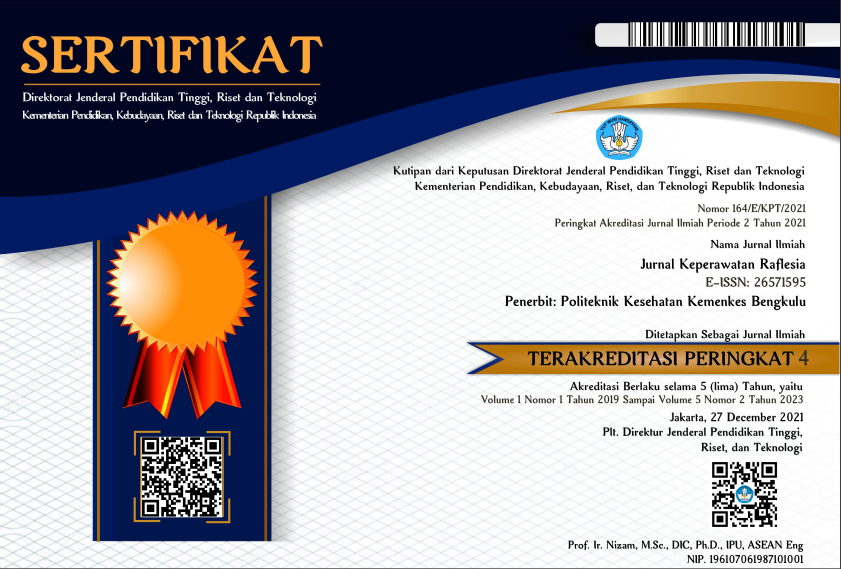Critical Nurses’ Views And Experiences Of Caring Unconscious Patients: A Qualitative Study
DOI:
https://doi.org/10.33088/jkr.v5i2.1112Keywords:
Critical Nurses caring on unconscious patientsAbstract
Nurses who care for patients in critical rooms, especially unconscious patients, feel greater pressure and burden of responsibility when caring for patients. This study further explores the nurses’ perceptions as 24-hour care providers for unconscious patients and their experiences observing patients and family interactions during the critical phase of unconsciousness. Data were collected with Descriptive Qualitative Research Approach through a focus group discussion process consisting of 12 critical care nurses as participants. The results show four main themes and seven subthemes, including the nurses’ responses when they first met unconscious patients, family involvement in patient care, the role of family stimulation activities, and the patient’s responses when they woke up. This study concludes that nurses attempt to function effectively according to the nursing process procedures, although psychologically, they experience stress when caring for unconscious patients, and active family involvement s essential to support and enhance the patient’s recovery process. Furthermore, critical nurses need to get interventions for solving their psychological problems and the need to actively involve families in the care of unconscious patients.
Downloads
Published
Issue
Section
License
Authors who publish with JURNAL KEPERAWATAN RAFLESIA agree to the following terms:
- Authors retain copyright and grant the Jurnal Keperawatan Raflesia right of first publication with the work simultaneously licensed under a Creative Commons Attribution License (CC BY-NC-SA 4.0) that allows others to share (copy and redistribute the material in any medium or format) and adapt (remix, transform, and build upon the material) the work for any purpose, even commercially with an acknowledgement of the work's authorship and initial publication in Jurnal Keperawatan Raflesia.
- Authors are able to enter into separate, additional contractual arrangements for the non-exclusive distribution of the journal's published version of the work (e.g., post it to an institutional repository or publish it in a book), with an acknowledgement of its initial publication in Jurnal Keperawatan Raflesia.
- Authors are permitted and encouraged to post their work online (e.g., in institutional repositories or on their website) prior to and during the submission process, as it can lead to productive exchanges, as well as earlier and greater citation of published work (See The Effect of Open Access).

















